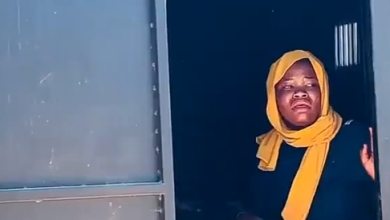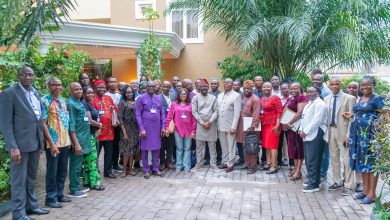NRC Boss Warns Against Vandalism, Calls Railway Infrastructure a National Lifeline
NRC boss Dr. Kayode Opeifa has decried rising railway vandalism, warning that stolen tracks are not scrap but national assets vital to Nigeria’s unity.
He urged communities to safeguard rail lines that link cultures, drive growth, and transform towns, stressing that vandalism threatens both national development and social cohesion.
The Managing Director of the Nigerian Railway Corporation (NRC), Dr. Kayode Opeifa, has sounded the alarm over the growing menace of railway infrastructure vandalism, stressing that these assets should never be mistaken for scrap. According to him, they are critical national treasures that play a pivotal role in fostering national unity and driving economic growth.
Dr. Opeifa expressed grave concern over the rising incidents of theft and destruction of railway components across the country. He pointedly stated, “We don’t have scraps in the Nigerian railway; we have national assets.”
Opeifa emphasized that the railway system in Nigeria is far more than a means of transportation it serves as a bridge connecting the country’s diverse ethnic, religious, and linguistic groups. He illustrated how the rail lines physically and symbolically connect people from different walks of life, reinforcing the unity of the Nigerian federation.
“You can travel from Lagos to Osogbo speaking Yoruba, then move on to Ilorin and start picking up the Nupe language. As you journey further to Niger, you may begin speaking Hausa, then on to the South-East where Igbo is spoken, and in other regions, Calabari, Edo, Hebrew, Tiv, and Kanuri. This system is what connects us. It’s what makes us one country,” he said.
Reflecting on the scale of the problem, the NRC boss compared Nigeria’s challenges with those of other countries. He recalled a recent visit to South Africa where he learned that even electric cables used to power trains were being stolen. However, he noted that Nigeria faces a different kind of issue. “Here, what they steal is the steel actual railway tracks and components and then they call it scrap,” he said, visibly disheartened.
Opeifa warned that this trend is not only criminal but deeply destructive to the nation’s progress. “These are the assets that link our people by culture, religion, and tribe. Anyone vandalizing them is essentially attacking the heart of the Nigerian people and disrupting the fabric that binds us together,” he stated.
To counter the growing threat, he appealed to residents and local communities living along railway corridors to take active ownership of the infrastructure in their vicinity. According to him, railways don’t just serve distant travelers; they often transform the immediate areas they pass through into bustling economic hubs.
“Every part of the country that the railway passes through ends up becoming a major city. It brings growth, business, and development. So, it is actually in the best interest of the locals to protect and preserve these tracks,” Opeifa explained.
While he refrained from detailing the specific security strategies currently being implemented to curb vandalism, Opeifa hinted at ongoing interventions. “I wouldn’t want to talk about what we have been doing so far, but we pray to continue doing them. We appeal to the communities supporting us already to remain vigilant. Where we need them most now is in curbing vandalism,” he said.
In conclusion, the NRC chief reiterated the urgent need for a collective national mindset shift viewing the railway not just as government property, but as a shared asset vital to Nigeria’s survival and progress.
With rail transport playing an increasingly crucial role in easing the burden on Nigeria’s road networks and boosting economic activity across regions, the call for greater protection of these infrastructures has never been more timely.



